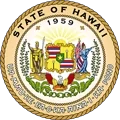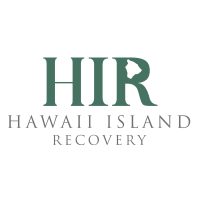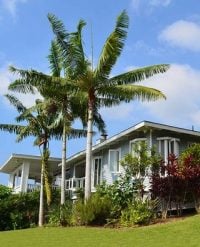Big Island Substance Abuse Council MTLP1
Drug Rehab Center in Hilo, Hawaii
Big Island Substance Abuse Council MTLP1 in Hilo, Hawaii is a non-profit provider of addiction and substance abuse services including outpatient counseling, drug testing, addiction evaluations, therapy, medication-assisted treatment, life skills classes and support groups.
About This Hilo, HI Facility
Big Island Substance Abuse Council MTLP1 in Hilo, Hawaii, is a non-profit service provider dedicated to providing individuals and families with a continuum of care for addiction and substance abuse. Founded in 2004, the center offers outpatient counseling to individuals and families in need of assistance with substance abuse. The facility has a 24-hour helpline and provides both individual and group counseling. Additionally, they offer drug testing and a variety of other services to help prevent addiction and support its recovery.
Big Island Substance Abuse Council MTLP1 has a range of services designed to help those dealing with addiction and substance abuse. They provide addiction evaluations to identify the unique needs of the individual, as well as individual therapy, group therapy, family therapy, crisis support and intervention services, and referrals for residential treatment programs. They also provide medication-assisted treatment for individuals to help reduce cravings, manage withdrawal symptoms, and improve their overall health. Finally, they offer life skills classes and support groups in which individuals can learn skills to help manage addiction and make healthier lifestyle choices.
Big Island Substance Abuse Council MTLP1 is accredited by the Joint Commission and holds a National Accreditation from the Center for Medicaid and Medicare Services. They have also achieved dual certification from the American Society of Addiction Medicine and the National Association of Addiction Professionals. Additionally, they have a Comprehensive Substance Abuse Program which has been designed to meet the specific needs of each individual. They also hold several awards including the National Quality Award from the American Society of Addiction Medicine, and the Excellence in Treatment Award from the State of Hawaii Department of Mental Health.
Genders
Ages
Modality
Additional
Conditions and Issues Treated
Rehab centers exist in Hilo, HI to help individuals bounce back from substance abuse, which is an umbrella term for drug and alcohol addiction. Drug addiction refers to the use of illegal drugs and improper use of prescription drugs. Centers like Big Island Substance Abuse Council MTLP1 provide individuals a chance to access individual and group therapy that can be monumental for recovery.
Substance abuse includes all problems that stem out from using various psychoactive substances. It is also a diagnostic term used by Diagnostic and Statistical Manual of Mental Disorders (DSM-IV) to define the mental and physical impairment or distress caused by misuse and overuse of certain substances in a period of 12 months.
Levels of Care Offered
This center offers a variety of custom treatment tailored to individual recovery. Currently available are Aftercare Support, Drug Rehab, Residential, with additional therapies available as listed below.
Residential treatment programs are those that offer housing and meals in addition to substance abuse treatment. Rehab facilities that offer residential treatment allow patients to focus solely on recovery, in an environment totally separate from their lives. Some rehab centers specialize in short-term residential treatment (a few days to a week or two), while others solely provide treatment on a long-term basis (several weeks to months). Some offer both, and tailor treatment to the patient’s individual requirements.
Aftercare support involves the support given to a Hilo, Hawaii patient after they complete treatment. It helps them adjust to normal life. It may include setting them up in a halfway house and enrolling them in programs like Narcotics Anonymous (NA) and Alcoholics Anonymous (AA). Big Island Substance Abuse Council MTLP1‘s patients may also be provided with career training to help them get back into the job force.
Big Island Substance Abuse Council MTLP1‘s Therapies & Programs
Couples therapy is an approach wherein the patients and their partners are engaged together as a part of the treatment process. When a person becomes a victim of substance abuse, it affects the patient and the people around him, particularly his partner. Their relationship can become strained due to lack of communication, financial issues, loss of trust, lack of intimacy, and physical abuse in more severe cases.
Couples therapy addresses these issues and tries to rebuild the trust between the partners. The partner’s involvement in the process will result in greater chances of treatment success and sustained recovery.
Family therapy is a set of therapeutic approaches that assumes that the entire family is a system. It utilizes the strengths and resources of the family to help the patient refrain from resorting to substance abuse. It helps to repair relationships and improve communication between family members.
Group therapy happens at Big Island Substance Abuse Council MTLP1 in a controlled group environment, as opposed to a one-on-one setting. It supports Hilo, HI patients’ recovery by offering a sense of comfort and letting them know that they are not alone. Through shared conversations, patients also learn to develop faith and understanding and gain insight on their addictions.
Unresolved trauma is often a key reason why many patients resorted to substance abuse. Trauma therapy refers to treatment wherein specialist therapists help the patients to resolve the trauma that led the patients to substance abuse. The trauma could be physical abuse, sexual abuse, war, natural disasters, divorce, accident, loss of a loved one, etc. Thinking of these traumatic events causes emotional disturbances like anxiety, depression and results in addiction. If trauma is the primary cause of substance abuse, then both issues must be addressed. Otherwise, there is a risk of relapse. Trauma therapy also improves the cognitive functions and provides long term benefits.
Dialectical Behavior Therapy (DBT) is an improved version of Cognitive Behavioral Therapy (CBT). DBT is a treatment of choice for people suffering from self-harming behaviors characterized by cutting and suicidal thoughts or inclinations.
This treatment is developed to help individuals recognize their thought patterns, behaviors, and feelings. It has demonstrated its effectiveness for people that are finding it difficult to control their emotions and urges. Conditions such as obsessive-compulsive disorder and borderline personality disorder also benefit from DBT as it imparts individuals stress-management techniques and enhanced self-esteem so they can sustain their sobriety by reducing the impact of triggers and out-of-control emotions.
Cognitive behavioral therapy (CBT) is a way of addressing concerns through talking. It can be used in individual counseling sessions. Talking through issues with professionals at Big Island Substance Abuse Council MTLP1 can identify sources of discomfort or unhealthy thoughts. It is a way of learning about yourself and your individual perceptions. CBT is a healthy way of addressing some behaviors which may be bringing unintended consequences in your life.
Rational Emotive Behavior Therapy (REBT) sees a person suffering from substance addiction to have illogical reasoning, counterproductive actions, and does not see things clearly. Due to this, REBT deals with cognition, images, and behavior extensively to rectify the client’s bad habits. REBT pushes an individual to become more reasonable and choose a life without the repercussions of addictions.
Patients at Big Island Substance Abuse Council MTLP1 in Hilo, HI learn how to self-soothe by conducting rational self-counseling. REBT provides their patients with the skill sets necessary in handling problems all by themselves, without seeking professional help. The process calls for practice, reiteration, and bolstering the new way of thinking being introduced to the patient.
Contingency management is a way to help motivate someone to remain substance free. It is a process of rewarding positive choices and good outcomes. As humans we are wired to recreate experiences that lead to positive feelings. Through this method incentives are used for completing positive steps towards a sober life. This may be a reward for attending meetings, remaining sober or for employment goals.
Payment Options Accepted
For specific insurance or payment methods please contact us.
Is your insurance accepted?
Ask an expert, call (888) 674-0062
Additional Details
Specifics, location, and helpful extra information.
Hilo, Hawaii 96720 Phone Number(808) 935-4927 Meta DetailsUpdated November 25, 2023
Staff Verified
Patient Reviews
There are no reviews yet. Be the first one to write one.
Hilo, Hawaii Addiction Information
Hawaii has one of the highest rates of drug abuse in the nation. Methamphetamines and marijuana are the most common drugs involved in drug-related crimes in Hawaii. The state loses $500 million every year due to methamphetamine abuse, according to the Hawaii Meth Project. More than 1 million prescriptions for prescription drugs are given out every year.
Hawaii has one of the highest rates of drug abuse in the nation. According to the 2012 National Survey on Drug Use and Health, 1.9% of people 12 or older in Hawaii used methamphetamine in the past year. There were also 681,000 active marijuana users during that same period time. Some centers specialize in a specific type of treatment, such as 12-step programs or faith-based programs.
Treatment in Nearby Cities
- Waialua, HI (234.3 mi.)
- Keaau, HI (7.7 mi.)
- Lahaina, HI (130.1 mi.)
- Mililani, HI (223.4 mi.)
- Schofield Barracks, HI (227.6 mi.)
Centers near Big Island Substance Abuse Council MTLP1
The facility name, logo and brand are the property and registered trademarks of Big Island Substance Abuse Council MTLP1, and are being used for identification and informational purposes only. Use of these names, logos and brands shall not imply endorsement. RehabNow.org is not affiliated with or sponsored by Big Island Substance Abuse Council MTLP1.








